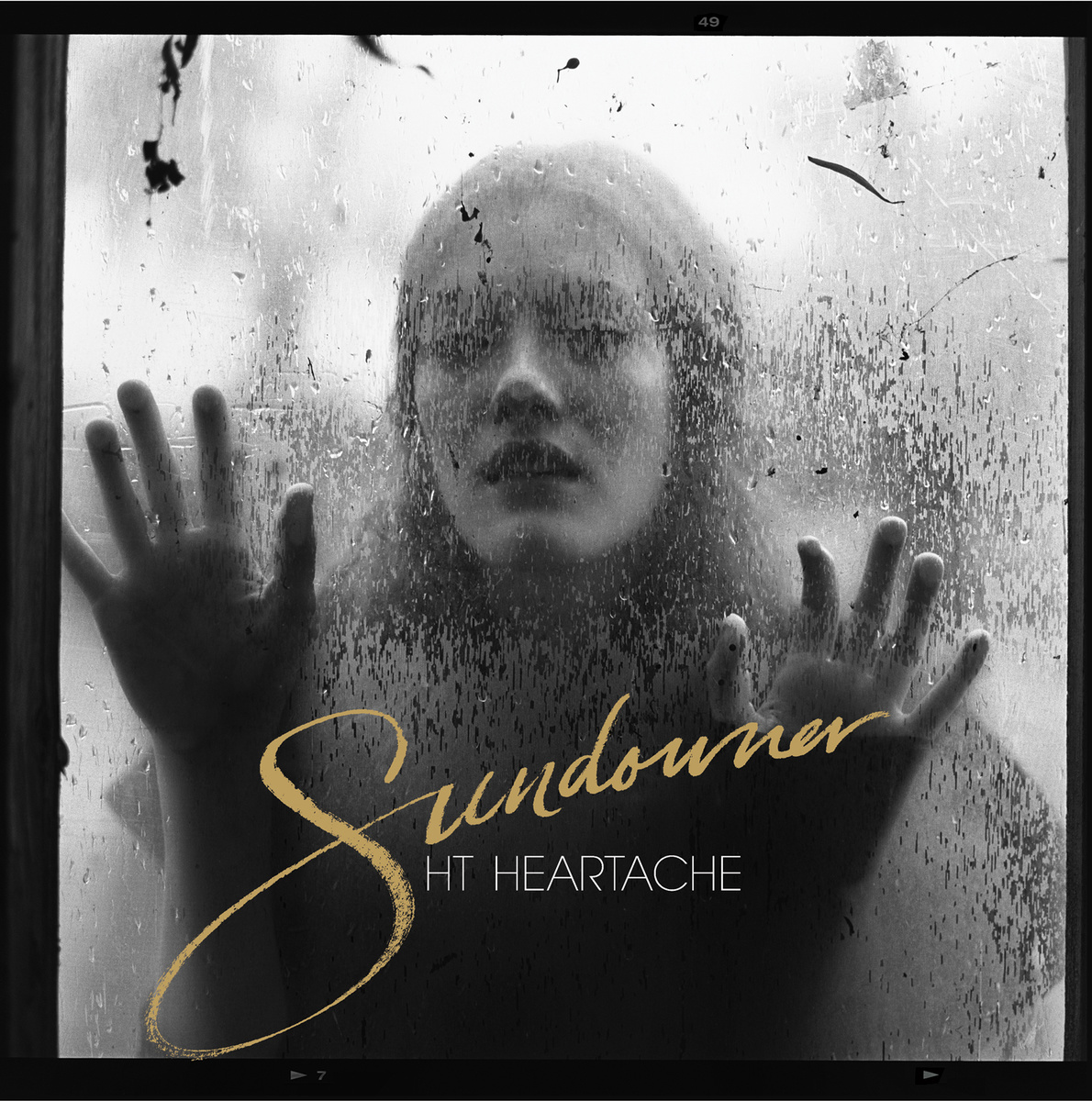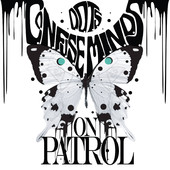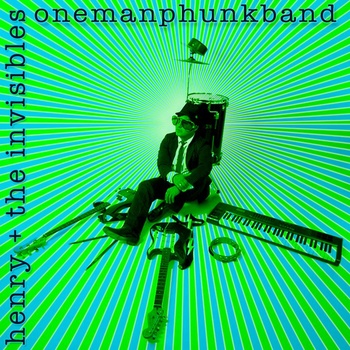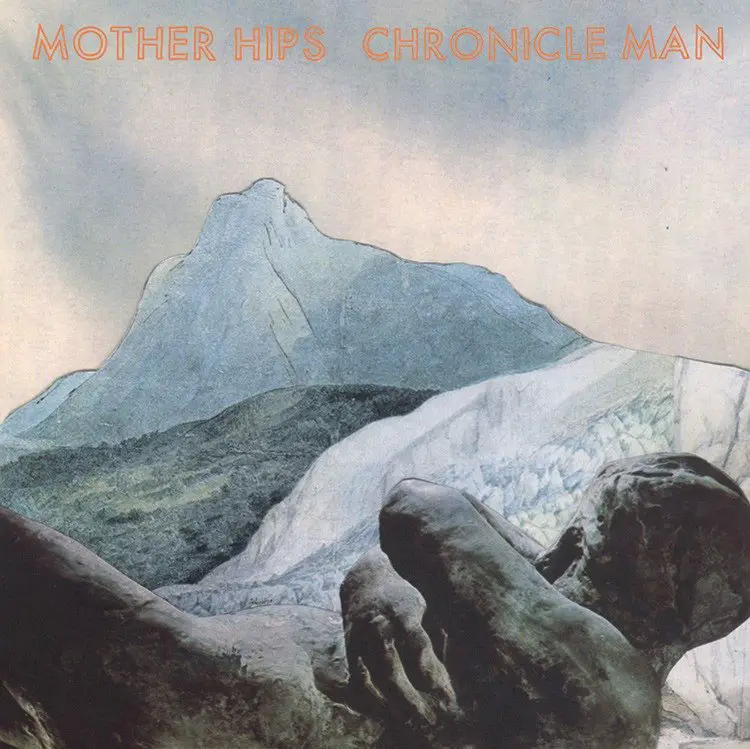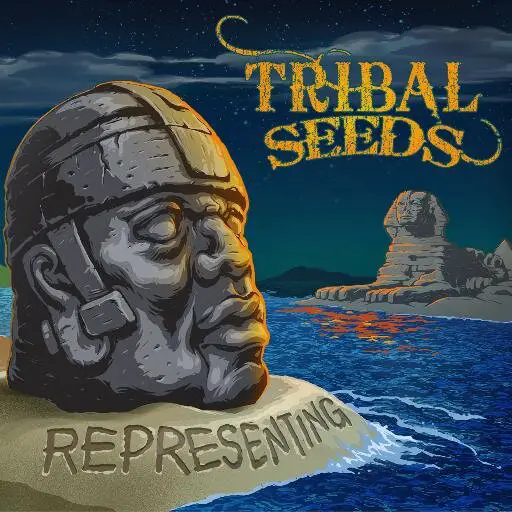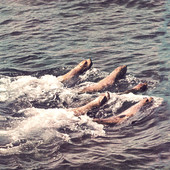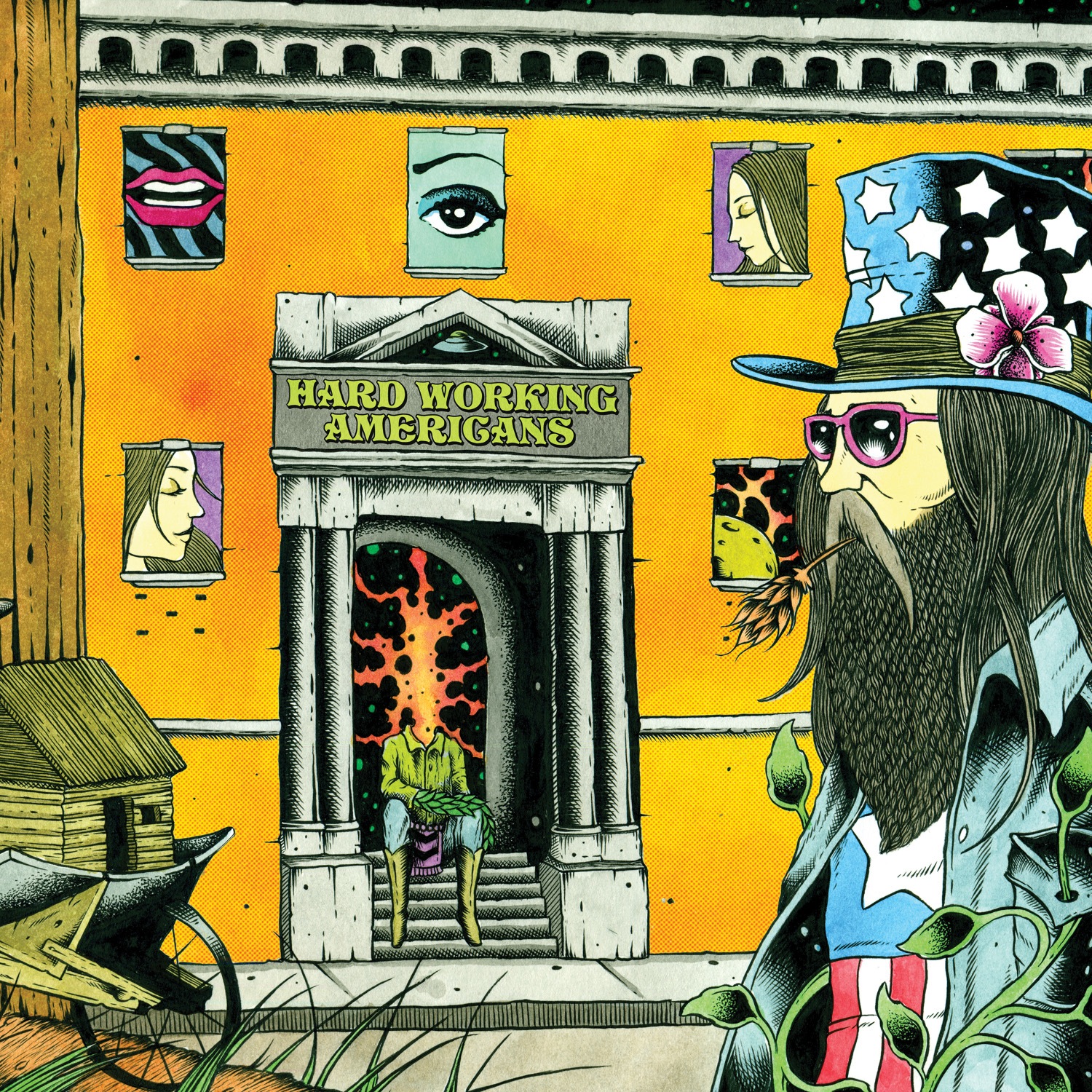Good Panamanian acid-jazz-fusion by way of Kansas City can be hard to come by these days. Well, at least there’s Making Movies.On the whole, the prog-Latino quartet’s self-released second album, A La Deriva, is strange South American psychedelia; in moments, it’s overwhelming or simple, radical or routine. Consistent? No. But there’s something distinctive enough about the record to warrant a listen.From the start, it's clear that Making Movies enjoy teetering on the fringe. Songs begin with haphazard introductions, broken melodic cuts and shifts before the movements grow or jump to smooth. The hooks to follow are transient whether they're powerful or contrived; A La Deriva has always got somewhere else to get to, beginning to end is a journey and we're not allowed to make ourselves at home for more than a minute or so. Again, the method's hit or miss, but there are some bits to this album that you're not going to find elsewhere.First track's characteristic of what's good to come -- can’t understand a damn word of it but hell if I wouldn’t dance to “Cuna De Vida” in some Panamanian dive with the rest of the locals.The second offering, “Lo Que Quiero” has a trippy hook when it picks up and could probably find its way onto the soundtrack of a throwaway Antonio Banderas joint but doesn’t follow up the opener quite so strong as I would have liked.Moving on, "Pendulum" is obviously trying to solidify crossover appeal with the album's initial English foray. The tune keeps a relatively simple pace, and it's okay. Nothing to grab the masses; maybe a few traditionalists looking to experiment will take the bait.A quarter of the way through, "Te Estaba Buscando” brings percussionist Juan Carlos Chaurand’s offbeat tapping to the forefront until carefully picked string notes climb in. I can appreciate the sparseness of the arrangement and the unique driving singalong near the end, but it all seems a little cluttered. A frantic high come from nothing, tripping across the record for a moment before everyone simply moves on. “Ego Trip” antagonizes in its place with minor chords and a faux-angelic chorus and makes you wonder if the I’ll be your saving grace line is just that or a contrivance uttered to seduce hopeless romantics in the crowd. The song is pretty telling of the album as a whole -- sloppy and a bit unsure at times of just what it’s saying, chorus intense and joined by the masses, but the emotion is there -- messy guitars, vocals, beats to match the ambience of the lyrical mind.We're left to keep wondering on what can only presumably be a love ballad lost in translation (“Luna”) next. Another potential Dos Equis ad in the wrong hands but spurring an affecting response nonetheless. The chants over singer Enrique Chi’s cries are powerful, trippy -- it'll all get to you.“Ciego Sin Querer” screams with more cries that could be right at home in an early Floydian freakout from the Saucerful of Secrets days and underlying jazz that belongs in a SoHo supermarket. A high watermark for the record.If "Ciego Sin Querer" is the height of celebration on A La Deriva, “Ready For The Rain” is the morning after. Written for a lazy Sunday, and it works as such. Don’t expect the track to carry you far, but it’ll do the trick if you’re looking to sink back in a stony bed for another hour or two. (A side note, the guitar solo couldn’t help but remind me of the synthesizers on "Welcome to the Machine", albeit with some more organic string sprinkled in.)“Deriva” echoes in the aftermath over struggling backup, organ cuts and stifled snare with a little strumming and resonance. Not quite filler, not so much to hold on its own.Winding down, "Muerte" shows the collective playing with salsa roots, traditional as the album gets, near the end. This one's for the Latino purists, and they won't find much fault in the delivery."Chase Your Tail" wraps up with quirk, humbly decorated with enthusiastic rural fiddle riffing over guitars and simple percussion while the band sings non-lyrics behind Chi's musings. It's pretty, a swan song with some hopeful vibrance leftover.
“Ego Trip” antagonizes in its place with minor chords and a faux-angelic chorus and makes you wonder if the I’ll be your saving grace line is just that or a contrivance uttered to seduce hopeless romantics in the crowd. The song is pretty telling of the album as a whole -- sloppy and a bit unsure at times of just what it’s saying, chorus intense and joined by the masses, but the emotion is there -- messy guitars, vocals, beats to match the ambience of the lyrical mind.We're left to keep wondering on what can only presumably be a love ballad lost in translation (“Luna”) next. Another potential Dos Equis ad in the wrong hands but spurring an affecting response nonetheless. The chants over singer Enrique Chi’s cries are powerful, trippy -- it'll all get to you.“Ciego Sin Querer” screams with more cries that could be right at home in an early Floydian freakout from the Saucerful of Secrets days and underlying jazz that belongs in a SoHo supermarket. A high watermark for the record.If "Ciego Sin Querer" is the height of celebration on A La Deriva, “Ready For The Rain” is the morning after. Written for a lazy Sunday, and it works as such. Don’t expect the track to carry you far, but it’ll do the trick if you’re looking to sink back in a stony bed for another hour or two. (A side note, the guitar solo couldn’t help but remind me of the synthesizers on "Welcome to the Machine", albeit with some more organic string sprinkled in.)“Deriva” echoes in the aftermath over struggling backup, organ cuts and stifled snare with a little strumming and resonance. Not quite filler, not so much to hold on its own.Winding down, "Muerte" shows the collective playing with salsa roots, traditional as the album gets, near the end. This one's for the Latino purists, and they won't find much fault in the delivery."Chase Your Tail" wraps up with quirk, humbly decorated with enthusiastic rural fiddle riffing over guitars and simple percussion while the band sings non-lyrics behind Chi's musings. It's pretty, a swan song with some hopeful vibrance leftover. On the whole, producer Steve Berlin (Los Lobos and Ozomatli, among others) actually surprises with the freedom he allows Making Movies during A La Deriva's set, forgoing some of the polish from his other productions in favor of extended acid-tinged jams and cracking yells. If there’s magic in A La Deriva, it comes when Berlin keeps his hands to himself. Making Movies insistently treads the line between a peyote trip in the desert and Latino salsa, though weakness occasionally glares when communication beyond the guitar and percussion’s raw emotional immediacy becomes an ephemeral priority. Eclectic electric folk from Panama. A La Deriva isn’t a perfect album. There are slow, idle periods, sure, but I can’t help being drawn back to each hook, each insistent overture scrambled in the mix. Maybe it’s a sad necessity that the languid stretches only can make the peaks profound, but that's everything A La Deriva has to offer -- calm and waves in a South American storm.
On the whole, producer Steve Berlin (Los Lobos and Ozomatli, among others) actually surprises with the freedom he allows Making Movies during A La Deriva's set, forgoing some of the polish from his other productions in favor of extended acid-tinged jams and cracking yells. If there’s magic in A La Deriva, it comes when Berlin keeps his hands to himself. Making Movies insistently treads the line between a peyote trip in the desert and Latino salsa, though weakness occasionally glares when communication beyond the guitar and percussion’s raw emotional immediacy becomes an ephemeral priority. Eclectic electric folk from Panama. A La Deriva isn’t a perfect album. There are slow, idle periods, sure, but I can’t help being drawn back to each hook, each insistent overture scrambled in the mix. Maybe it’s a sad necessity that the languid stretches only can make the peaks profound, but that's everything A La Deriva has to offer -- calm and waves in a South American storm.
Making Movies: A La Deriva | New Music Review






